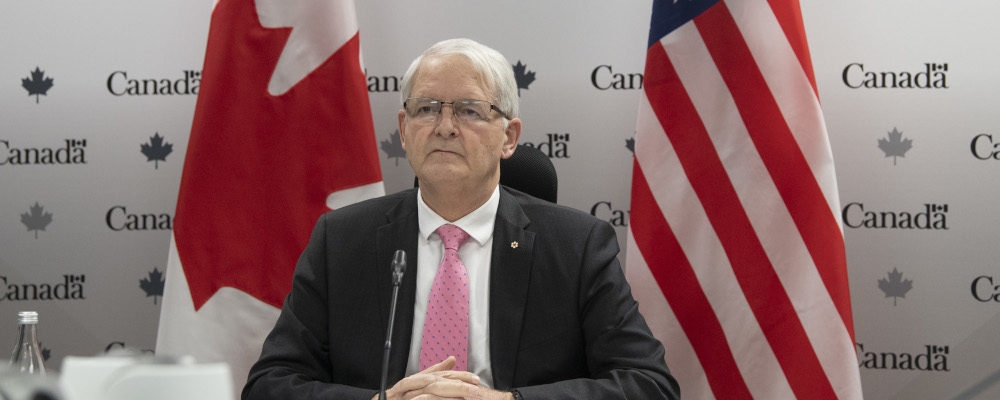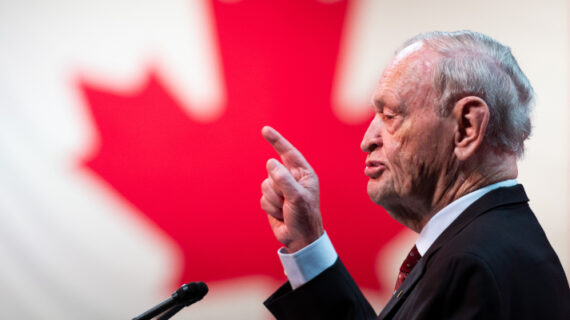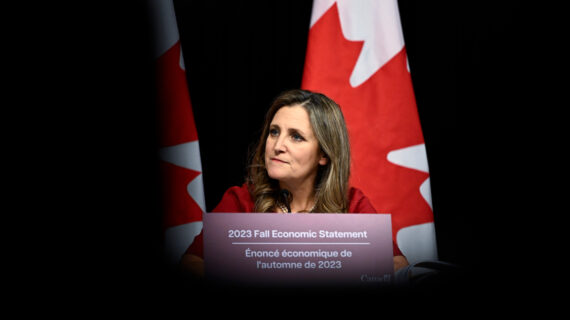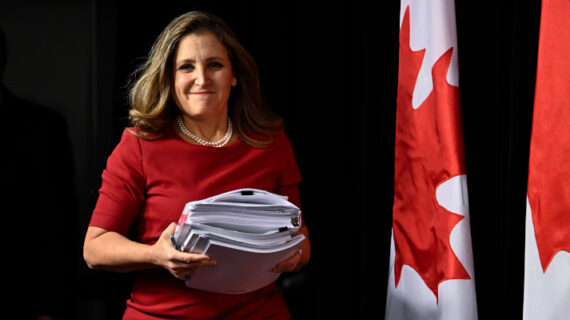There’s no question that racism and white supremacy are atrocious realities faced by racially marginalized populations in Canada today. We need to do more as individuals and as a society to condemn and combat these injustices, and we need to make sure we do it right.
Doing it right includes identifying and addressing aspects of our institutions that serve to perpetuate racism, while preserving those that offer protection against it.
Unfortunately, documents used by Global Affairs Canada as part of anti-racism training (recently highlighted by Tristin Hopper in the National Post) show that the federal government seems to be getting it wrong in deeply concerning ways.
The government’s materials identify certain commonly-held principles as “characteristics of white supremacy,” including individualism, objectivity and the “worship of the written word.”
Far from being tools of racism, these values are typically more consistent with shielding minorities from racism than they are with subjecting them to it.
True, these issues are highly complex and oversimplification is inevitable in a column of this length. But that is precisely why the government’s fleeting yet denigrating treatment of these values is so troubling.
By identifying widely-accepted principles as “characteristics of white supremacy,” the government may inadvertently trivialize and even perpetuate the abhorrent reality of racism itself. Regular people’s very reasonable support of norms like individualism and objectivity might wrongly make them think that perhaps the horror of white supremacy is based on tenets they can relate to.
That would be a tragedy and it is why the government’s endorsement of this approach must be challenged.
It has long been recognized that one of the best ways to protect minority interests is through individual rights.
Let’s start with individualism.
Individualism holds that every person is an inherently worthy being who ought not to be used as a means for something (or someone) else’s ends. Each of us has as much right as any other to set out our life plan, to live freely, and to flourish without our interests being subordinated to other purposes. By placing a high value on personal freedom, individualism rejects uniformity and facilitates true diversity.
Individualism offers important protections to minorities in majoritarian political systems like ours. When we place all of our trust in majority-based decision-making, history has shown that the interests of minorities are the first to be set aside for the purposes of the greater number. John Stuart Mill called this “the tyranny of the majority.”
That’s why we have things like the Charter of Rights and Freedoms in Canada and the Bill of Rights in the United States — because it has long been recognized that one of the best ways to protect minority interests is through individual rights.
Next up, objectivity.
Put simply, objectivity can be defined as freedom from bias in one’s judgements. It seems like quite a stretch to suggest that the malicious reality of white supremacy is served by the ideal of being free from bias in one’s judgements.
Admittedly, the idea of setting aside one’s prejudices to achieve impartiality is not always easy and often unsuccessful. But one would think that we ought to at least strive for it, whether it comes to our justice system, policing, journalism and much more.
As in the case of individualism, objectivity is especially important when it comes to protecting minority rights. For example, racial prejudice among the police and judiciary has frequently been highlighted as a problem by marginalized groups. As we work to address this, one would think objectivity gets us a whole lot closer to where we should be than subjectivity does.
Last but not least, it’s worth discussing the “worship of the written word.”
The written word includes, among other things, the very Charter of Rights and Freedoms that has been used time and again to protect minority rights. And in addition to being the format of choice for many of the world’s religious records, literary masterpieces and great philosophies, it also provides the legal embodiment of the rule of law, which (at least notionally) places all citizens equally before the courts.
Of course, the written word isn’t the only way of doing things. After all, much of our constitution is unwritten, and many Indigenous groups celebrate oral traditions. It’s also true that the written word doesn’t guarantee equal treatment in practice, but the concept is not something that is intrinsically evil.
What we risk losing sight of in all of this is the fact that racism is a very real and very urgent problem.
Despite what the government’s anti-racism materials suggest, though, there are aspects of our political and social foundations that are actually worth defending for the various roles they can and do play in protecting minorities. That includes individualism and objectivity, along with the respect we have for the written word.
Sure, these aren’t the only important values in our society. And it’s also true that in practice they don’t always work out as well as they do in theory.
At the end of the day, though, there’s no question that all three principles are things Canadians should be able to believe in without feeling complicit in something as repugnant as white supremacy. If anything, these values at least try to counter injustice and prejudice, and our country ought to be celebrating them, not vilifying them.
We’re at a critical juncture where racism is finally being recognized as the problem it is, and we can’t allow our government to malign the very aspects of our institutions that arm us in our fight against it.




